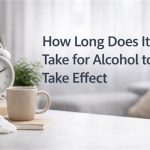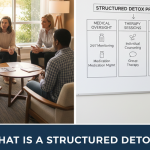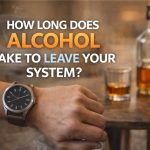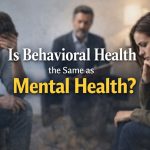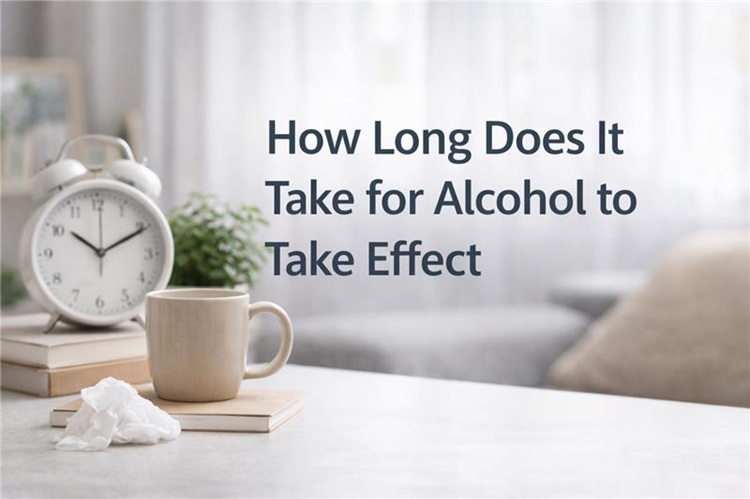Key Takeaways
- Gambling is not a bad habit that people feel ashamed of.
- There are numerous ways through which gambling issues are distinguished, including secrecy and financial problems.
- Gambling addiction has numerous causes, namely, genetics, brain chemistry, environment, and stress.
- CBT, motivational interviewing, and relapse prevention are the various therapies.
- Individuals with gambling addiction are better resolved through the treatment and monitoring that are provided.
Introduction
Gambling is a game that may begin as a form of entertainment. This can be in the form of playing cards or simply purchasing lottery tickets as a form of leisure. Yet, this exercise is not hard to become an uncontrollable habit and it becomes a gambling addiction to certain individuals. This addiction impacts family, not only financially but also psychologically. Estimates of the National Council on Problem Gambling located in the United Kingdom report that there are 2 million adults in the United States who are willing to satisfy the qualifications of severe gambling issues. In addition, there are millions of at-risk people.
The addicted persons are highly vulnerable, and they cannot stop, regardless of the huge losses they incur. The reason is that the addiction also triggers the brain reward system, which is similar to the actions of drugs or alcohol. This also encourages risky behavior and stimulates the shame and relapse processes.
Nevertheless, the best news is that it is possible to deal with the gambling addiction. Procedures like community support, medication and therapy are among the various ways through which recovery can be offered. The symptoms, causes, medications, diagnosis and treatment will be discussed in the blog below. Moreover, we shall also provide answers to the most crucial one: What is the most appropriate therapy to be used to treat a gambling addiction?
100% Confidential Support is Available 24/7
No matter what you’re going through, you’re not alone. Our dedicated team is here to provide a safe, judgment-free space where you can talk openly and honestly. Whether you need emotional support, resources, or just someone to listen.
We’re here for you—completely confidential and always respectful of your privacy. Call us today!
What is Gambling Addiction?
Gambling addiction, or gambling disorder, is a behavioral type of addiction that simply represents an uncontrollable desire to play even though it is too expensive. The obsessive gamblers are unable to quit placing bets on the hard-earned money despite accumulating debts. These individuals do not belong to the group social gambling where individuals restrain themselves.
The diagnosis of the addiction disorder according to the DSM-5 by the American Psychiatric Association (APA) as a gambling disorder is an addictive disorder.
Key Differences:
Occasional Gambling | Gambling Addiction |
Entertainment, occasional play | Urges feel uncontrollable and compulsive |
Can walk away after losses | Chases losses, keeps betting |
Financial limits respected | Ignores limits, severe debt accumulates |
Gambling addiction may take a very violent shape when not checked and it may readily ruin money, it may be the source of legal trouble as well as occasional family strain. The biggest clue to achieving successful treatment is accepting it as a disorder.
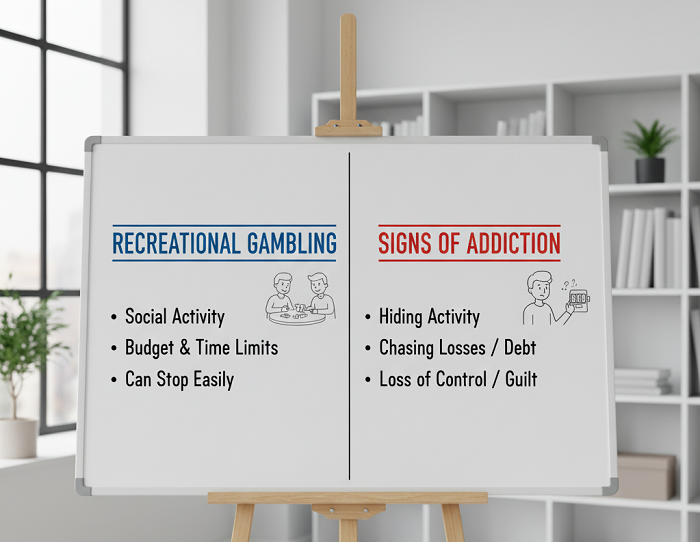
Deland Treatment Solutions
Battling with Drug and Alcohol Addition? Remember, you are not alone and we are here to help you!
Gambling Addiction Symptoms
Gambling addiction has different symptoms and they resemble different symptoms as do other addictions. The gambling habit has emotional, behavioral, and financial warning signs:
Emotional Symptoms:
- Anxious, guilty, or irritable off the gambling floor.
- Irritability and insomnia.
Behavioral Symptoms:
- The most widespread is keeping the secrecy concerning gambling.
- The individual may gamble the extra amount of money to compensate for the previous losses.
- Gambling addicts may not report to work or school, and they may not spend time with family.
Financial Symptoms:
- Taking loans, selling stuff.
- Mounting debt, unpaid bills.
- Risk of bankruptcy.
Here is a table defining the symptoms:
Category | Common Signs |
Emotional | Anxiety, guilt, mood swings |
Behavioral | Lying, chasing losses, neglecting duties |
Financial | Debt, borrowing, financial collapse |
Red Flag: When gambling takes over day-to-day life, it becomes essential to seek professional help.
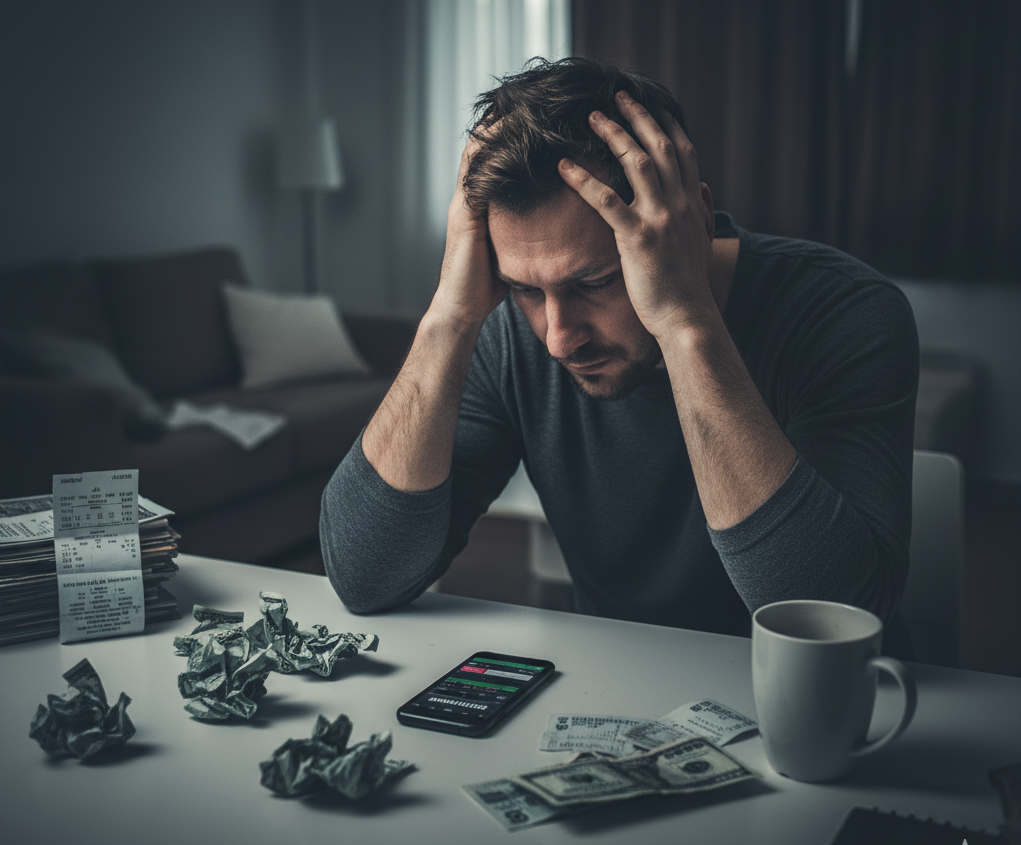
Gambling Addiction Causes
The gambling addiction is rooted in numerous factors which include biological, psychological and environmental factors. All the causes can be broken down as follows:
- Genetics: The history of family addiction predisposes.
- Brain Chemistry: Gambling results in spikes of dopamine and this sequence causes the brain to get in a pattern of secreting the hormone.
- Co-occurring Disorders: A lot of disorders like bipolar, anxiety and depression, tend to get an individual into the gambling trap.
- Environment: It has a great number of applications and casinos everywhere, which increases the exposure and people get into this trap.
- Stress and Trauma: Gambling, too, may grow as a coping factor for any extreme stress or trauma.
Quick Look at Causes:
Biological Factors | Environmental Factors | Lifestyle Factors |
Genetics, dopamine | Casinos, online access | Stress, trauma, and peers |
Coexisting illness | Social pressure | Substance use |
Pro Insight: Reasons are often alike. Any individual may turn into an inheritor of risks, feel the economic pressure and get nervous. A vicious circle is formed where gambling can be regarded as a means of rescue.
CALL US NOW
DeLand Treatment Solutions will iron out the details for you in a manner that will make you confident in your path to sobriety. That first simple call is your ticket to making DeLand Treatment Solutions your solution for addiction. Get the freedom from addiction that you deserve today.
Gambling Addiction Medication
No specific drug has been approved to treat gambling disorder but several drugs are promising when used together with therapy:
- SSRI (Antidepressants): paroxetine and escitalopram, they help in treating anxiety and depression.
- Mood Stabilizers: lithium, valproate gambling with bipolar disorder.
- Opioid Antagonists: Naltrexone and nalmefene inhibit the reward system of the brain to gambling.
Medications & Uses
Medication Type | Purpose | Example Drugs |
Antidepressants | Ease depression/anxiety | Escitalopram, paroxetine |
Mood Stabilizers | Control mood swings | Lithium, valproate |
Opioid Antagonist | Reduce pleasure cravings | Naltrexone, nalmefene |
It is known that medicines are beneficial in the recovery process but, effective therapy is required to realize visible outcomes. Such medicines can improve impulse control as well as reduce the chances of relapse.
Gambling Addiction Diagnosis
The gambling addiction may be diagnosed as follows:
- Medical Evaluation: This treatment can identify any physical problem or medication that may be contributing to gambling addiction easily.
- Psychological Assessment: Various surveys and gambling behavior-based interviews can assist in determining the patterns.
- DSM-5 Criteria: It has a minimum of 4 behaviors that involve chasing losses, lies about gambling and even endangering relationships. These patterns can determine the addiction of a person to gambling.
Patient Advice: They should develop a journal wherein they can record the urges to gamble. This may assist the professionals in coming up with an accurate diagnosis and a committed program.
Gambling Addiction Help
Seeking help is vital. Available options include:
- Hotlines: There are special helplines that would assist in combating gambling addiction.
- Self-help groups: It has several self-help and peer support groups, which help share stories and get over the addiction.
- Therapist Support: Other licensed counsellors may be used to recover from the gambling habit using programs.
Community Programs: The community programs funded by the state have some available community programs that provide treatment for free or at low costs.
Tip: It is preferable to make a trusted person your partner in sharing your recovery plans and sharing your journey with. When another party is responsible, then the likelihood of recovering is increased.
Therapy for Gambling Addiction
Therapy is at the center of treatment. The best alternatives that could work are:
- Cognitive Behavioral Therapy (CBT): It is applied to rectify distorted thinking and to train problem-solving and more healthy habits.
- Motivational Interviewing: Prepares change through the management of ambivalence.
- Relapse Prevention Therapy: Teaches individuals to be trained on how to address high-risk situations.
- Family Therapy: Regains the trust, educates the family, and strengthens the system of recovery support.
Therapy Comparison Table:
Therapy Type | How It Works | Effectiveness |
CBT | Reframes thinking, builds coping skills | High, evidence-based |
Motivational | Enhances motivation, reduces resistance | Effective short-term |
Relapse Prevention | Manages triggers, prevents relapse | Strong long-term tool |
Family Therapy | Improves family trust and support | Essential add-on |

Gambling Addiction Treatment Center
The rehabilitation facilities offer orderly recovery:
- Inpatient Rehab: 24/7 Immersive inpatient care.
- Home life and flexible therapy Outpatient Programs.
- Residential Programs: Long-term holistic recovery.
Personality therapy, access to healthcare professionals, society, and relapse prevention. Facilities used to treat co-occurring disorders to achieve recovery.
Break free from gambling with DeLand Treatment Solutions.
What is the Best Therapy for Gambling Addiction?
The gold standard of gambling addiction is Cognitive Behavioral Therapy (CBT). The research confirms that CBT reduces urges and distorted beliefs and enhances coping. However, the combination of therapies using medications, support groups and relapse prevention results in better results.
Why CBT Works Best:
- Delusions (I can win back losses).
- Replace bad habits by good habits.
- Provides expertise on the way of coping with stress and triggers.
Holistic Approach:
- Motivational interviewing boosts preparation.
- Family therapy is restored by reestablishing support networks.
- Peer groups ensure accountability.
Visit DeLand Treatment Solution and get expert assistance with gambling addiction. Start recovery (386) 866-8689 now
Conclusion
- Gambling addiction is not a bad habit but a behavioral disorder.
- The symptoms will influence emotions, behavior and money.
- These reasons are genetics, brain chemistry, and environment.
- CBT is the gold standard in therapy.
- The medications aid in the healing process but do not cure.
- Peer groups and treatment centers contribute towards long-term success.
- Saving can be done with the appropriate assistance.
FAQs About Gambling Addiction
What is the most appropriate way of preventing gambling?
The combination of different things including CBT is the best way to go. The brain should be rewired and reduced risks of relapse.
What is the management of gambling addiction?
CBT is one of the best and the initial treatments. Beyond that, motivational interviewing, relapse prevention and family therapy which may enhance the outcomes can be mentioned.
Can the brain overcome the issue of gambling addiction?
Yes one can get rid of gambling addiction through long-term treatment and abstinence. It is in this way that the brain systems get reconfigured that can reduce the urge of gambling and improve the control over the urge.
What is the gambling-related mental illness?
Gambling addiction may become a mental illness, in which an individual may succumb into depression and observe anxiety, bipolar disorders, and substance use disorders too.
What is meant by a gambling addiction?
Gambling addiction merely implies that there is compulsive desire whereby an individual gambles without considerations of the financial or psychological impacts.
Can one cure gambling addiction?
There is a possibility that gambling addiction can be cured but it cannot be cured instantly.







